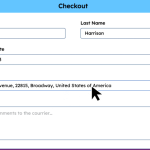
When you think of applying for a loan, the first thing that often comes to mind is your CIBIL score. In India, lenders use this score as a key indicator of your ability to repay borrowed money.
But what if you don’t have a score yet? Can you still get a loan without CIBIL?
Let’s take a closer look at what it really means to have no credit history, whether loans are still within reach, and how to navigate this situation wisely.
Understanding the Role of CIBIL in Lending
To begin with, let’s understand why the CIBIL score carries so much weight in the Indian lending ecosystem.
Your CIBIL score, which ranges from 300 to 900, reflects your credit behaviour — how you’ve managed loans, credit cards, and repayments in the past. Generally, a score above 750 is considered healthy.
A higher score gives lenders more confidence in your repayment capacity, often leading to faster approvals and better interest rates. However, many people assume that having no score means their application will be outright rejected. This isn’t entirely true, but it does make the process slightly more challenging.
Who Typically Has No CIBIL Score?
You might be wondering: who falls into the category of having no CIBIL score at all?
In most cases, it’s young professionals or fresh graduates who have just started working and haven’t yet used credit products. There are also many self‑employed individuals or people in rural areas who have traditionally relied on cash and never felt the need for formal credit.
As India moves towards greater financial inclusion and digital adoption, the number of people with no credit history is shrinking, yet still significant. If you’re among those without a score, you’re certainly not alone.
Is a Loan Without CIBIL Really Possible?
The answer is yes. While banks and traditional financial institutions often prefer applicants with a credit history, many modern lenders — especially fintechs and NBFCs — now use alternative methods to assess your creditworthiness.
Instead of relying only on a CIBIL score, they evaluate you based on:
- Your income level — steady salary or regular business income increases your chances.
- Employment details — being employed with a reputable company or having a stable business shows you’re reliable.
- Bank statements — lenders check your monthly inflows, expenses, and balance patterns.
- Bill payment history — on‑time payments for utilities, rent, or phone bills demonstrate good financial discipline.
- Digital footprint — some fintechs even analyse your online transactions and spending habits to gauge responsibility.
Many fintechs also use AI‑driven credit models that analyse behaviour patterns beyond traditional credit reports. So even if you have no credit history yet, lenders can piece together a financial picture from these factors to decide if they can trust you with a loan, often starting with a smaller amount at a higher interest.
Types of Loans You Can Get Without CIBIL
While banks tend to prefer applicants with established credit, other options do exist if you’re just starting out. Let’s explore the most common types.
- Secured Loans:
If you can offer collateral — such as gold, fixed deposits, or property — lenders are more willing to approve your loan. This is because the risk to the lender is reduced.
- Unsecured Personal Loans:
Some fintech companies and NBFCs (Non‑Banking Financial Companies) specialise in offering personal loans to new‑to‑credit borrowers. These are tailored for those seeking a loan without CIBIL, albeit with slightly higher interest rates and lower amounts initially.
- Short‑Term Digital Loans:
Popular among young professionals and students, these instant loans — offered through mobile apps — use alternative data to assess creditworthiness. They’re quick, convenient, and a good way to build your credit profile.
- Student Loans and Education Finance:
Education loans, often backed by a guarantor or collateral, are another option. Since lenders recognise students as first‑time borrowers, these loans are designed with leniency on the credit history requirement.
Pros and Cons of Taking a Loan Without CIBIL
Before you proceed, it’s wise to weigh the advantages and drawbacks of borrowing without a credit score.
| Pros | Cons |
| Helps you build a credit history from scratch | Higher interest rates compared to borrowers with good credit |
| Quick access to funds in emergencies or for immediate needs | Lower loan amounts and shorter repayment tenures initially |
| Wider choice of lenders, especially fintechs and NBFCs willing to serve new-to-credit borrowers | Stricter eligibility checks on income and employment stability |
| Flexible options like secured loans and digital short-term loans | Risk of falling into a debt trap if repayments are missed |
| Opportunity to demonstrate responsible credit behaviour and improve future loan eligibility | Limited bargaining power for better terms and conditions |
Tips to Improve Your Chances of Approval Without a CIBIL Score
While lenders are more accommodating today, you can still take steps to strengthen your application:
- Keep your documents ready: Make sure your income proof, ID, and address documents are in order.
- Start small: Apply for a smaller amount initially and repay it on time to build trust with the lender.
- Consider secured options: Offering collateral often results in better terms and lower interest rates.
- Be cautious of scams: Always choose regulated lenders and avoid schemes that seem too good to be true.
By approaching the process strategically, you can avoid pitfalls and set yourself up for future financial success.
Building Your CIBIL Score After Your First Loan
Once you’ve secured and repaid your first loan, it’s crucial to start building your credit history. Regularly paying your EMIs on time, keeping your credit utilisation low, and avoiding defaults will gradually improve your CIBIL score.
A good score opens doors to larger loans, lower interest rates, and faster approvals, making your financial life much smoother down the line.
Final Thoughts
Overall, getting a loan without CIBIL is certainly possible in today’s evolving lending landscape. It’s a sensible choice if you need funds urgently and can repay responsibly.
However, if you can wait, building a healthy credit score before borrowing can help you access better terms and higher limits.
The key is to borrow thoughtfully, repay on time, and use your first loan as a stepping stone to a stronger financial profile. Even if you have no score today, your financial journey has just begun, and you have the power to make it a positive one.





